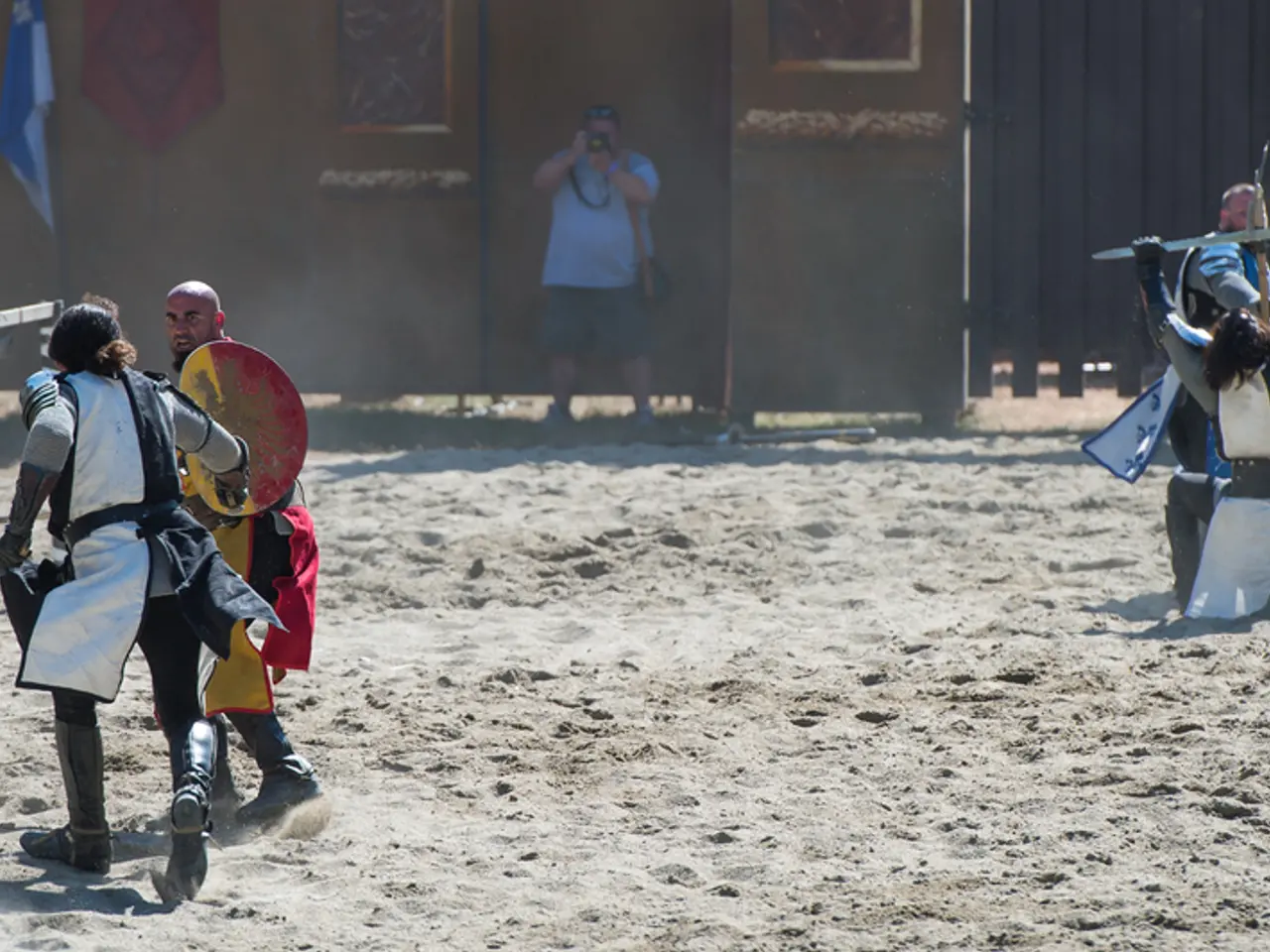Thai military alleges that Cambodia remains disingenuous about achieving peace, persistently deploying landmines
In the ongoing Thailand-Cambodia border conflict, tensions have escalated significantly in recent months, with intense clashes near disputed temples like Preah Vihear and Ta Muen Thom. Both countries have accused each other of using landmines, with Thailand specifically alleging that Cambodia has laid new mines, contributing to injuries among Thai soldiers.
The Thai army spokesman, Maj Gen Winthai, has stated that the use of PMN-2 landmines by Cambodian soldiers is equivalent to direct weaponized attacks on Thailand. This assertion comes after Thai military personnel were injured by freshly laid Cambodian landmines in normal patrol areas where mines had previously been cleared.
The Thai army is currently detaining 18 Cambodian soldiers, according to reports. The detention of these soldiers complies with international laws, including the Geneva Convention, as stated by the Thai army spokesman. However, the Thai army has expressed concerns that releasing the soldiers could allow them to participate in further attacks on Thailand.
Cambodia has asked the Thai army to free the detained soldiers, but the Thai army will continue to hold them as long as Cambodia fails to prove it wants an end to the violence on the border and ceases its attacks on Thailand. It's important to note that no clear reports on detained soldiers have been found in the available sources.
The Ta Muen San Chey temple, located 1.8 kilometres from the Thai border, was considered a military target by the Thai military. All civilians had previously been evacuated from the temple area, which the Cambodian military took over as a gathering and command point for its forces to attack Thailand.
The conflict has had a devastating impact on both countries, with civilians hit on both sides, including hospitals and a school. Fighting escalated significantly from July 24, involving gunfire, artillery, rocket exchanges, and Thai airstrikes against Cambodian positions. Martial law was declared in several Thai border districts.
Diplomatic efforts have been ongoing, with ASEAN and the UN Security Council calling for an immediate ceasefire. By late July, both sides agreed to “an immediate and unconditional ceasefire” in talks held in Kuala Lumpur. However, enforcement remains challenging, and military tensions persist with troop buildups.
In summary, the ongoing Thailand-Cambodia border conflict is a volatile situation, rooted in historical disputes, with landmine hazards and military exchanges intensifying already fragile relations. The Thai army's detention of 18 Cambodian soldiers and the allegations of landmine use by both parties highlight the urgency for a peaceful resolution to this conflict.
- The ongoing border conflict between Thailand and Cambodia, involving war-and-conflicts, politics, general-news, and crime-and-justice, highlights the urgency for a peaceful resolution as the use of landmines by both parties has escalated tensions significantly.
- The Thai army's detention of 18 Cambodian soldiers, a subject of politics and crime-and-justice, serves as a tool to ensure compliance with international laws, including the Geneva Convention, while the Cambodian government, in an attempt to de-escalate, continues to request their release.





